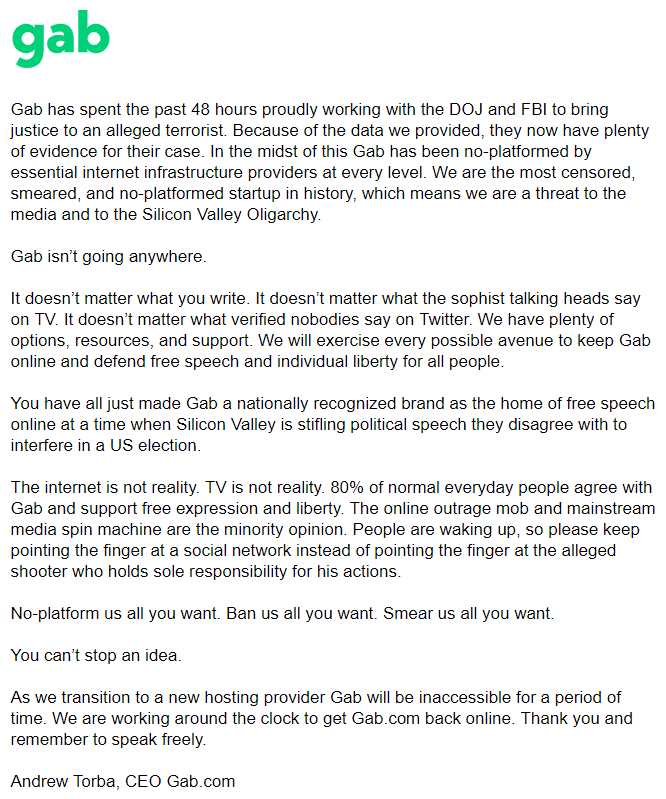Unlike other social media platforms that have hosted (and continue to host) legal-but-“hateful” content, Gab has suffered a de-platforming and is currently scrambling to get the service operational with a new service provider (reported to be a non-US site). On Monday, the Gab team posted the following static page in place of their normal UI:
The Z Man explains:
The question that normal people ask is how this is possible. After all, these companies sign contracts and in theory, we still have courts where contracts can be enforced by impartial judges. While that is a laughable fiction now, the reality is these companies are not bound by standard business agreements. They have been allowed to carve out new law for themselves, forcing their vendors and customers to sign off on what is called an adhesion contract. This gives the tech giants absolute power over everyone else.
An adhesion contract or “standard form contract” is a contract drafted by one party and signed by another party. The second party typically does not have the power to negotiate or modify the terms of the contract. Adhesion contracts are commonly used for things like insurance or rental contracts. When you rent a car or purchase car insurance, you just sign the contract, because you have to in order to rent the car or get insured. Every technology service provider is now basing their relationships on these types of contracts.
It used to be that the courts carefully scrutinized these types of arrangements, so the contract had to adhere to some basic principles. The courts would often use the “doctrine of reasonable expectations” to void all or part of these contracts, when there was lack of notice, unequal bargaining power, or blatant and substantive unfairness. The reason for this should be obvious. When a powerful company has the right to dictate the terms of the contract to their customers, they have all the power in the contractual relationship.
In western jurisprudence, a valid contract is one in which both parties freely engage and have equal opportunities to negotiate. When one party imposes the conditions on the other, that’s not a contract. That’s slavery. In a world where a handful of people control the public space, these types of contract give them arbitrary power over public discourse. If they become vexed with what you say, they can claim you have violated their terms of service and remove you from the internet. Again, the terms are dictated, not negotiated.






